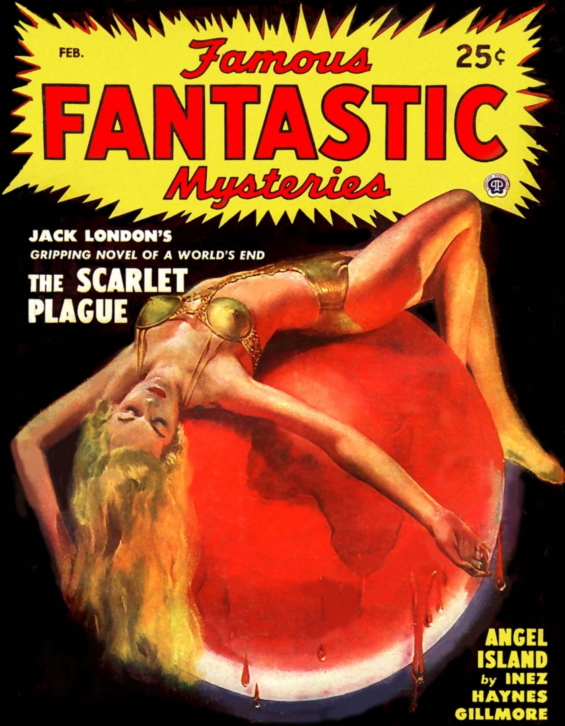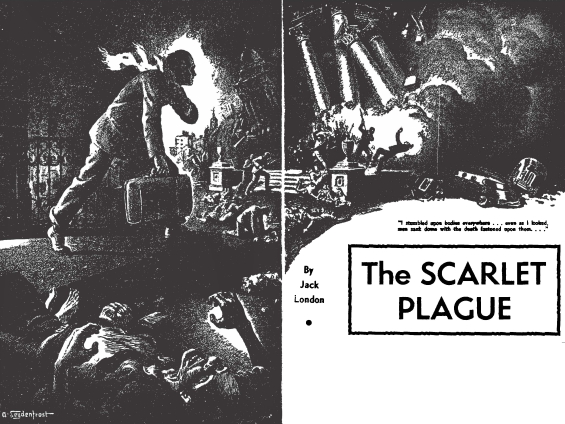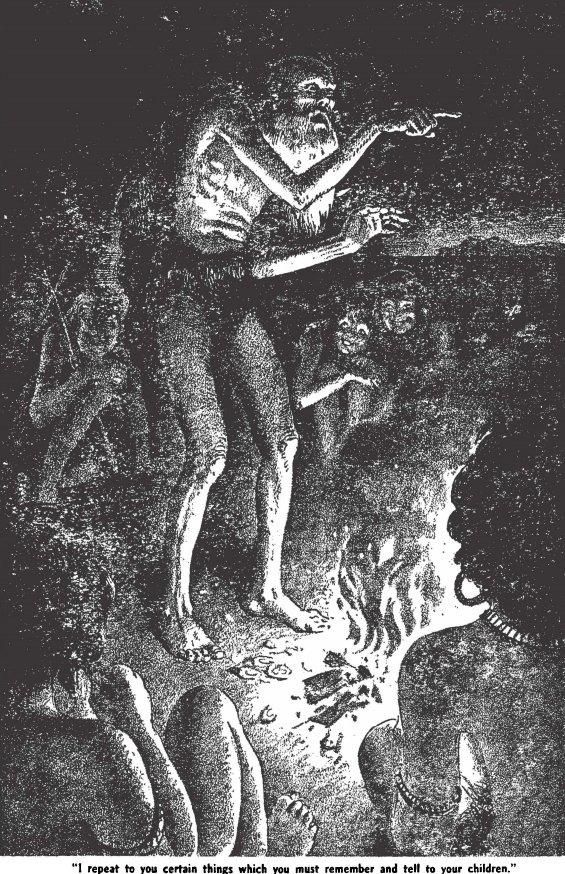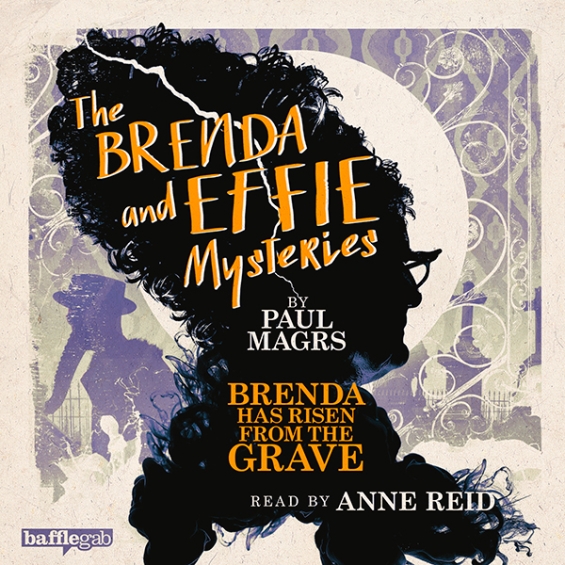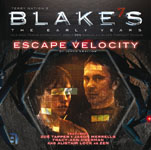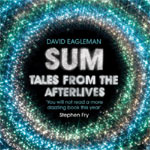
 The SFFaudio Podcast #548 – Jesse, Paul Weimer, Marissa VU, Maissa Bessada, Evan Lampe, and Terence Blake talk about The Ministry Of Truth by Dorian Lynskey
The SFFaudio Podcast #548 – Jesse, Paul Weimer, Marissa VU, Maissa Bessada, Evan Lampe, and Terence Blake talk about The Ministry Of Truth by Dorian Lynskey
Talked about on today’s show:
June 2019, direct from the publisher Penguin Random House, the last chapter, the afterword, there are four lights, the first part, learned the most, an intellectual history, the life after Orwell’s death, a grab-bag of memes, the cold war, the conservative revival, too loosey-goosey, H.G. Wells, We by Yevgeny Zamyatin, flat, comprehensive, how it touched other people, David Bowie, Star Trek, Babylon 5, it didn’t have that rigor (in the second half), a funnel, a shotgun, The Prisoner, the momentum is gone by 2019, how many places he’s infiltrated culture, computer games, blind spots, America was a blind spot, Orwell’s anti-Americanism, Trump, when you’re writing about history thirty years ago, perspective, Margaret Atwood’s appendix theory, a lot of bad theories, China and 1984, through the great firewall, censorship, The Guardian, June 4th anniversary, The Atlantic, why 1984 isn’t banned in China, the inner party is going to read it anyway, it’s at bookstores, Animal Farm, discussed in colleges in Canada, Hearts Of Iron IV, so deep, play Honduras during WWII, what officers in the army were active in Honduras during WWII, Paradox Games, insane on the details or mechanics, cannot be done in any other medium, fascinating, that they ban that, the meme of the day issue, PUBG, blood and gore restrictions (green blood), switches from being about Orwell and the U.K. to the United States after the war, the Apple ad, social media, fake news influencing the Taiwanese elections, who gets taught this book and who discusses it, how Orwell is used by the CIA as anti-communist propaganda, why so many people are forced to read it in school, school is indoctrination, training workers, who what huh?, what was your first encounter with Nineteen Eighty-Four, trying to learn about dystopian fiction, self-educate, a roman-a-clef (a book with a key), most teachers suck, who the fuck are those guys?, its not a kids book, Animal Farm is a kids book, propaganda, everybody wants to take control of Orwell, anti-totalitarian, notice how its not considered science fiction, she’s a stumbling block, she is double thinking when she says her book is not science fiction, in her mind, the pulpy fifties sort of stuff, a wilful blindness, voluntary ignorance, an article on Margaret Brundage (for Playboy), I’m going to write a science fiction novel, I’m going to write a utopian, a massive list, We is public domain, E.M. Forster’s The Machine Stops, I’m inside the machine, I worship the internet, just like the lady in the story, Looking Backward by Edward Bellamy, the premise, H.G. Wells (the guy most responsible for modern science fiction), in response to Looking Backward, the Bradbury Building in downtown Los Angeles, she uses the appendix theory in The Handmaid’s Tale, she needs that hope, had Orwell lived, Wells gets dragged, nobody likes Wells’ later stuff, H. L. Mencken’s review of Wells’ later stuff (The Late Mr. Wells), When The Sleeper Awakes, Mack Reynolds, the problem is everybody has a good income and no jobs, no waiters or waitresses, no service jobs, everybody wants meaning (and there’s no jobs), The Unincorporated Man by Dani Kollin and Eytan Kollin, that book nobody reads anymore, the turn from utopia to dystopia, a theory that’s just an idea, people trying to fuck with George Orwell’s statement for their purposes, how everybody can take ownership, this is how you guys are, high school sci-fi class, libertarian teacher, Fahrenheit 451 by Ray Bradbury, Harrison Bergeron by Kurt Vonnegut, kids are malleable, the books you read when you were young, Brave New World, look at this!, these are books that exist, who’s the publisher?, questions that never go into the mind of a student, Adbusters, slick production used against slick production, the best books tell you something you already know, I’m being gaslit, I’m not crazy!, that Goldstein book, literally true, did they create it themselves?, The Plague by Albert Camus, realist vs. allegory, a movie version of The Plague starring William Hurt, the Hurts hurt, the RCMP, anti-American imperialism, the Chinese threat, afraid of conscription, looking back do you see the hands?, staying with the Queen and following America’s lead, why we read the books that we did, the “free market” trying to sell books, not just the free market, Shakespeare for social purposes (rather than a CIA plot), The Outsiders by S.E. Hinton, the legacy, the same books still being pushed, a certain number of novels in the curriculum, The Hunger Games used in school, massive cultural impacts (from inertia), The Prisoner is Nineteen Eighty-Four, the village is perfect, everyone has a place, a child of 1984, spook-life, political expediency vs. moral obligation, the new Big Finish The Prisoner, what makes the dialogue authentic, all questions are turned on their heads, number one is number six, why Atwood’s theory is bad, when the telescreen echoes words, doubling dream-like, nothing is on fixed ground, is it even 1984, write new reality, the one book, a healthy body is a negative, physically weaker, turning them into infants, that instinct is within us, I want a pillow, the Big Brother reality shows, make me a star, I like being babied, people would volunteer for prison, no problem for most people, does it matter (most people aren’t going to read it anyway)?, the Internet Research Agency story, if this book was written in the 1970s, the Muller stuff, okay Rachel Maddow went too far, a political hack who doesn’t even know what’s in his own report, political interference, Honduras, why are 80% of the refugees Honduran, a passing reference to Milton Friedman and the Shock Doctrine, Chile, the U.S. Empire, not a major part of the story, Airstrip One, is Britain in charge or is Britain a colony in 1984, post national, the difference between patriotism and nationalism, a good and natural thing vs. an artificial and evil thing, a connection and fondness for them, when George Orwell went to fight against fascism, ok I have to fight now, when you submit to an authority, Blake’s 7, that opening episode is absolutely drawn from 1984, they call him a pedophile and insert memories in order to convict him, the solution (never stated) is anarchistic group of people who do not love Big Brother, even on Star Trek they have to follow orders, Terry Nation’s Survivors, the “good fight”, working with warlords to take down the Taliban, dishonorably discharged for telling the media about warlord sex-slaves, why the good side lost, nobody conscripted them, about nationalism, the state more than the nation, the Michael Radford movie of 1984, national symbols, nations are constructed, French culture, the French state, the books that are important to you, a nation is a project, what Oceania meant, they control the world through the sea, not nation names anymore, Orwell is seeing what’s happened to the U.K., The Marshall Plan, no victory here, V-J Day, this book published in June, no mention of BoJo (Boris Johnson), neoliberalism, ideology is what’s missing, Boris Johnson and Donald Trump don’t have ideology, the alternative facts are just to make them look good, damage control and self-promotion, not having an ideology is the ideology, double-think, he’s lying but he’s revealing what other don’t want to say, you don’t need an intellectualized theory, a gas that’s everywhere based on double-think, who gets to do the gas-lighting, story after story about alternative facts, Cube (1997), Cube 2 (2002), owners, making fun of a conspiracy theory is a conspiracy theory, Noam Chomsky, The Wall Street Journal, it’s not the focus, preferred candidates, the staff of RT is former MSNBC employees, Jesse Ventura, Minnesota exist in theory, the dominant voice, the subtitle is what sold me, The Biography Of George Orwell’s Nineteen Eighty-Four, a birth, genes, afterlife, more books like this, a negative review, Bellamy is the soup that’s in the culture that you’re building on, an overall trend from utopia to dystopia, so valuable, all the stuff that was listed, a lot not mentioned, the number of respondents to Bellamy, William Morris’ utopia, we’re the sleepers, that opening line (much improved from the original draft), he was a very good writer, the previous drafts, what he took out, really interesting, Orwell’s personality, cruel to everybody’s babies, a fundamental place of honesty, I paid money for this they’re doing a bad job, no animosity for the writer and artist, not trying to be mean, Jesse fears he’s being mean when he ats Marissa, a smile with a thing, “Lies are the religion of slaves and masters. Truth is the god of the free man.” from The Lower Depths by Maxim Gorky, the quote in the book is not that quote, the spirit of the play(?), a drama in four acts, as hard as it is to identify the truth (very very very hard), if you don’t have truth as your god you’re fucked, if you were forced to fight in a war in the 20th century, of all the fascist dictators was Franco the least worst?, Hitler, Mussolini, WWII was a battle against fascism, WWI, the Spanish Civil War, the Vietnam War, Maissa’s question (turned on its head), the International Brigades, Norman Bethune, the Great Patriotic War (in China), battlefield surgery, fighting for a principle, what war would you fight for?, what principles would you fight for?, Orwell’s Homage To Catalonia, pirate mentality, you don’t get 1984 without that, thinking on paper, everything that I wrote was directly or indirectly against totalitarianism and for democratic socialism, so Pollyanna, lay down and die, if conscripted during WWII Jesse would like to serve Alan Turning’s coffee, his country didn’t love him, you love Big Brother (he doesn’t care), the mustache is not a Hitler mustache, more Stalin, no one escapes the tar-brush, Little Brother by Cory Doctorow, an important and good book, how to fight against your government your institutions your Alexa devices, the Google button that’s built in, on principle it’s a bad idea to be submitting so, the reason it has a switch to turn the camera off, removing the battery, electromagnetic field sensitivity, keeping his cellphone in a lead-lined box, its off in a certain sense, devices with no off switches, “Nvidia Shield Off”, if the book is going to be relevant after 1949, B.F. Skinner’s Walden Two, positive reinforcement vs. negative reinforcement, use pleasure, use fear, News From Nowhere: 1984, the discovery of Eric Blair, lack of any institutionalized government, the dream of 19th century anarchism, 10 hours is a reasonable size, so much is suggested, the appendix is important, revising history, you don’t read the Dune appendix, the Tolkien appendices, A Clockwork Orange, a missing chapter, as Eric Blair intended, Eric Blair hates vegetarianism, teetotalers, nudists, Quakers, sandals, fruit juice, Marxist slogans, pistachio coloured shirts, birth control, yoga, and beads, anti-hipster socialist.
And, here are Marissa’s notes about UTOPIAS & DYSTOPIAS mentioned in The Ministry Of Truth:
1516 – Utopia by Thomas More
1726 – Gulliver’s Travels by Jonathan Swift
1771 – The Year 2440: A Dream If Ever There Was One by Louis-Sebastién Mercier (time-travel to future utopia)
1880 – Dr Heindenhoff’ Process by Edward Bellamy (scientist learns how to erase memories and guilt – Orwell’s Oceania-like)
1872 – Erewhon by Samuel Butler (satire)
1887 – A Crystal Age by W. H. Hudson
1888 – Looking Backward: 2000–1887 by Edward Bellamy
1889 – To Whom This May Come by Edward Bellamy (telepathy has eliminated crime and deceit)
1889 – New Amazonia: A Foretaste of the Future by Elizabeth Corbett (feminist utopia)
1890 – News from Nowhere by William Morris (agrarian, anarchist utopia – counter to Bellamy’s “cockney paradise”)
1890 – Looking Further Backward by Arthur Dudley Vinton (bigoted sequel to Bellamy’s book, nationalism + feminism have emasculated America)
1890 – Caesar’s Column: A Story of the Twentieth Century by Ignatius Donnelly (Minnesota congressman & original conspiracy utopia in which “paradise is carved out in a Swiss-owned Uganda while American capitalism perishes in blood and fire”)
1890 – A.D. 2050: Electrical Development At Atlantis by John Bachelder (Right-wing utopia, refugees from Bellamy’s failing Nationalist society flee to Atlantis, which is turned into a proto-Orwellian police state)
1891 – Mr. East’s Experiences In Mr. Bellamy’s World by C. Wilbrant
1891 – Freeland: A Social Anticipation by Theodor Herzoka (Austrian economist “the Austrian Bellamy”)
1891 – The New Utopia by by Jerome K. Jerome (Bellamy spoof, introduces “numbers as names” SF trope)
1892 – A Traveler from Altruria by William Dean Howell
1892 – Gold In The Year 2000, Or, What Are We Coming To? by J. McCullough (time travel to future utopia where men play golf)
1897 – Equality by Edward Bellamy (fills gaps in Looking Backward)
1893 – Sub-Coelum: A Sky-Built Human World by Addison P. Russel (conservative utopia, anti-“materialistic socialism”)
1894 – The Land of the Changing Sun by Will N. Harben (underwater society with gov of eugenicists uses scanning devices and psychological torture)
1894 – A Journey of Other Worlds by John Jacob Astor (A conservative utopia, [by] one of richest men in the world at time USA, dominates planet & seeks to colonize others)
1897 –”A Story of the Days To Come by H.G. Wells” (forerunner to The Sleeper Awakes)
1898 – The Sleeper Awakes by H.G. Wells
1899 – Imperium in Imperio by Sutton E. Griggs (first black utopia, Baptist Minister, son of former slave)
1900 – The Wizard of Oz by L. Frank Baum (“a Bellamyite, to judge by L. Frank Baum’s description of his egalitarian society in The Emerald City of Oz”)
1905 – A Modern Utopia by H.G. Wells
1906 – Looking Forward: The Phenomenal Progress Of Electricity in 1912 by Harry W. Hillman
1909 – The Machine Stops by E.M Foster (scientific dystopia)
1915 – Herland by Charlotte Perkins Gilman (feminist utopia)
1920 – We by Yevgeny Zamyatin (totalitarian state dystopia)
1923 – Men Like Gods by H.G. Wells (parallel universe utopia), HG Wells,
1932 – Brave New World by Aldous Huxley (response to Wells’ Men Like Gods)
1938 – Anthem by Ayn Rand
1940 – Darkness At Noon by Arthur Koestler (author’s disillusionment with the Soviet Union’s version of Communism at the outset of World War II)
1942 – Unknown Land by Herbert Samuel
1945 – Animal Farm by George Orwell
1948 – Walden Two by B.F. Skinner (utopian)
1949 – 1984 by George Orwell
1952 – Player Piano by Kurt Vonnegut
1953 – Fahrenheit 451, Ray Bradbury
1953 – Love Among the Ruins: A Romance of the Near Future by Evelyn Waugh
1953 – One by David Karp
1958 – The Rise Of The Meritocracy 1870–2033 by Michael Young
1960 – Facial Justice by L.P. Hartley
1962 – Island by Aldous Huxley
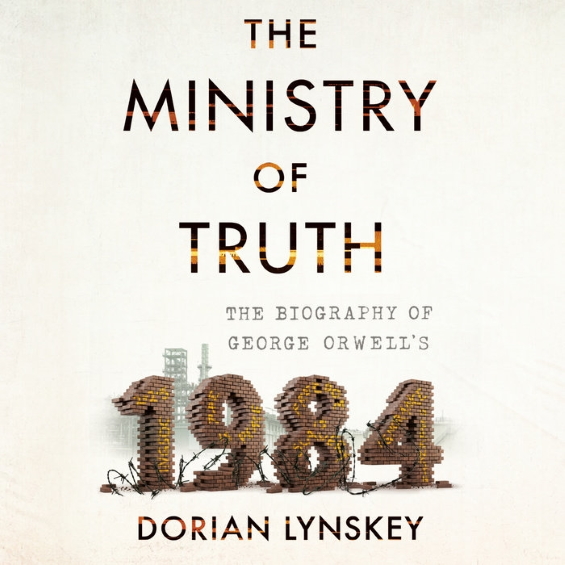
Posted by Jesse Willis
